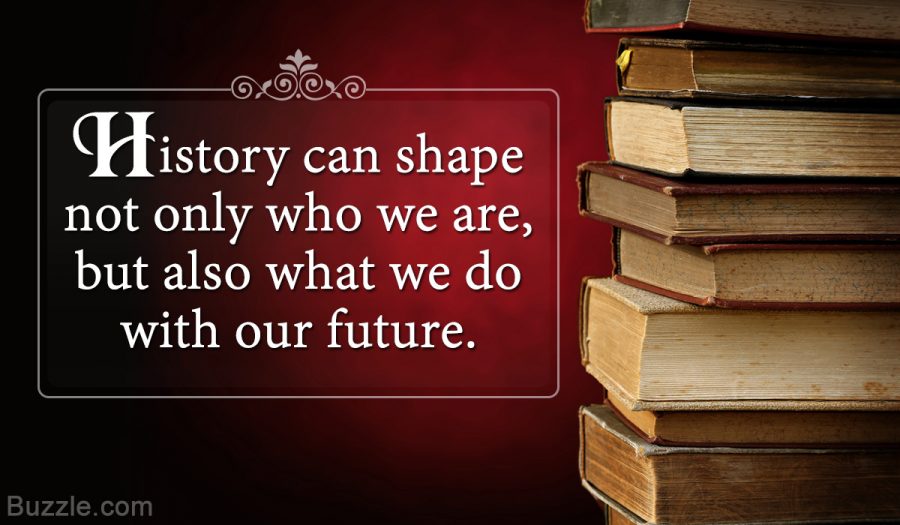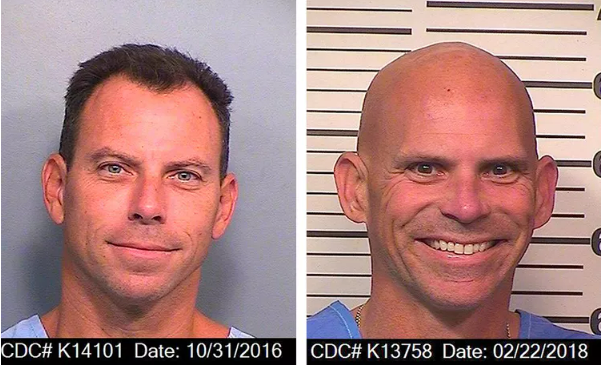Why Study History?
We live in the present. We worry about the future; it constantly fills our minds. On the other hand, history is the study of the past. So why bother studying it? If we are so caught up with what’s going to happen in the future, why should we concern ourselves with what has already occurred?
“A historical perspective helps us understand our own experiences better,” says Olympic Heights AP Art History teacher Ms. Gina Woods. Through history, students learn that they aren’t alone in certain situations, and that other people throughout history have either endured it or experienced similar situations. Those stories as told by history create and reinforce a sense of community.
As well as helping students comprehend things that happen in their own lives individually, history helps them understand people and societies. It makes students aware of the individuals that came before them, and therefore permits them to understand why societies behave the way they do. For example, whether it’s a war in the Middle East or the tensions in North Korea, history allows teenagers to understand the origins of those political and societal temperaments, and it helps them grasp why certain things happen in the world.
In addition, studying history gives students better learning skills. For example, OH AP World History teacher Ms. Chelsea Baer elaborates that students in her classes gain better study habits, writing skills, and a better understanding of their world from her class. Woods also explains that her AP Art History course helps students retain historical knowledge from other classes, especially information from World History. These skills combined allow one to develop the ability to make logical arguments based on a variety of data, whether that data be public statements, personal diary accounts of historical figures, numerical data, or visual materials. This very skill can also be applied to information confronted in everyday life.
“Studying history allows students to look at the world and different events that have happened in the world through different perspectives and become more empathetic and compassionate,” Baer articulates. That statement is echoed by Woods, who asserts that “if we have empathy, then we feel for people and we feel with them and that empathy drives our decision making in no matter what type of field we’re in.” As both teachers elaborate, history provides students with a sense of sympathy with the various societies of the world that would not normally be felt without a historical perspective.
For example, the recent fiasco with journalist Megyn Kelly could have been prevented had she known the history behind the racist comments she unknowingly made on live TV. While discussing Halloween costumes this year, Kelly justified why it was acceptable for white Americans to dress up as African Americans for Halloween by wearing black facial makeup covering their faces. She verbalized, “ Back when I was a kid that was OK, as long as you were dressing up as, like, a character.”
What Kelly did not realize, due to lacking a historical knowledge on the subject, was that in the past, wearing blackface was accompanied by racist mocking of African-American people. Had she been been aware of the historical background behind her comments, then she would have known that contemporary black face is not acceptable.
And the lack of historical knowledge gets even worse among everyday Americans. According to the National Review, 43 percent of Americans don’t know that the First Amendment gives them the right to freedom of speech, and a full one-third can’t even identify a single right it gives them. Yet, there are even more shocking results. In a survey recently conducted by the Woodrow Wilson National Fellowship Foundation, only one in three Americans is capable of passing the U.S. citizenship exam. The fact that most Americans don’t know their own history could possibly be one of the reasons why our country is in the chaotic and divided state it is in.
Link to see if you can pass the U.S. citizenship exam: https://www.uscis.gov/sites/default/files/USCIS/Office%20of%20Citizenship/Citizenship%20Resource%20Center%20Site/Publications/100q.pdf
A knowledge, even a basic comprehension of one’s nation’s history and other countries throughout the world, is essential to preserving all democratic societies. By learning history, students master how to be a good citizen. AP United States History teacher Mr. Corey Musser agrees in that regard as he divulges that an understanding of history and the events that have shaped the world is imperative to being being an active member of society. He elaborates, “The problem is you are not ‘just an individual,’ you are a member of your community, school, country, team, and as a collective we must know our history.” Therefore, by studying history, one gains habits of thinking that are crucial for responsible public behavior such as being an informed voter, a petitioner, simple observer, or a member of a community.
On this note, the question of whether history repeats itself is brought up. And yes, it certainly does in many cases. For example, the failed invasion of Russia by Adolf Hitler in 1941. A similar event arose about a century prior to this event when Napoleon also tried to invade Russia in 1812 and was also unsuccessful. Thus, if we learn what has happened in the past, we know how current and future events will transpire. Musser agrees as he explains that history allows us to “use past events to prevent future mistakes.”
Unless we learn history and its consequences on the people that came before us, we will continue to be apart of its endless cycle of repeating itself time and time again. Humans will make the same mistakes over and over, unless they learn from them. As the famous quote by Spanish-American philosopher George Santayana says, “Those who cannot remember the past are condemned to repeat it.”











